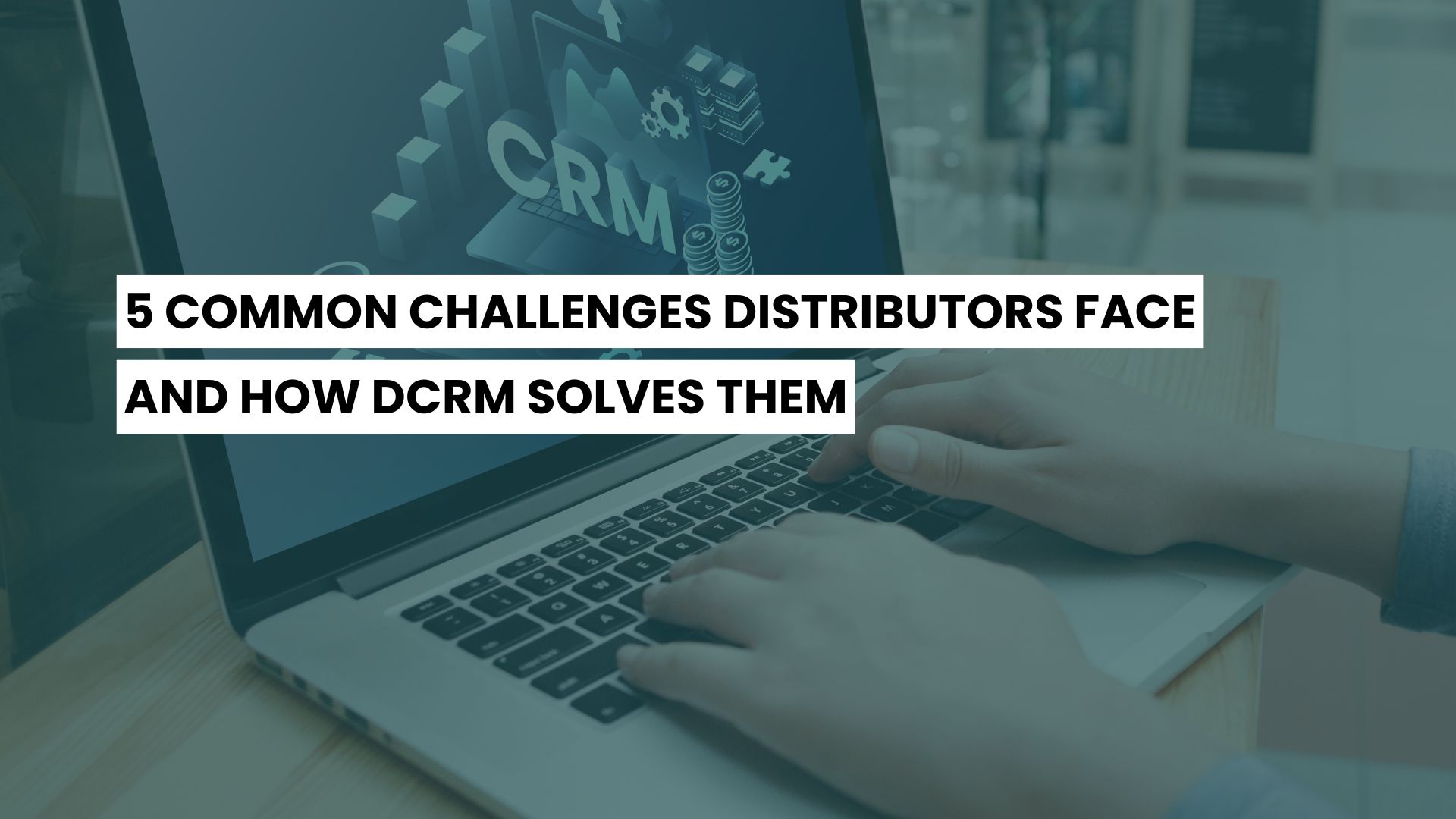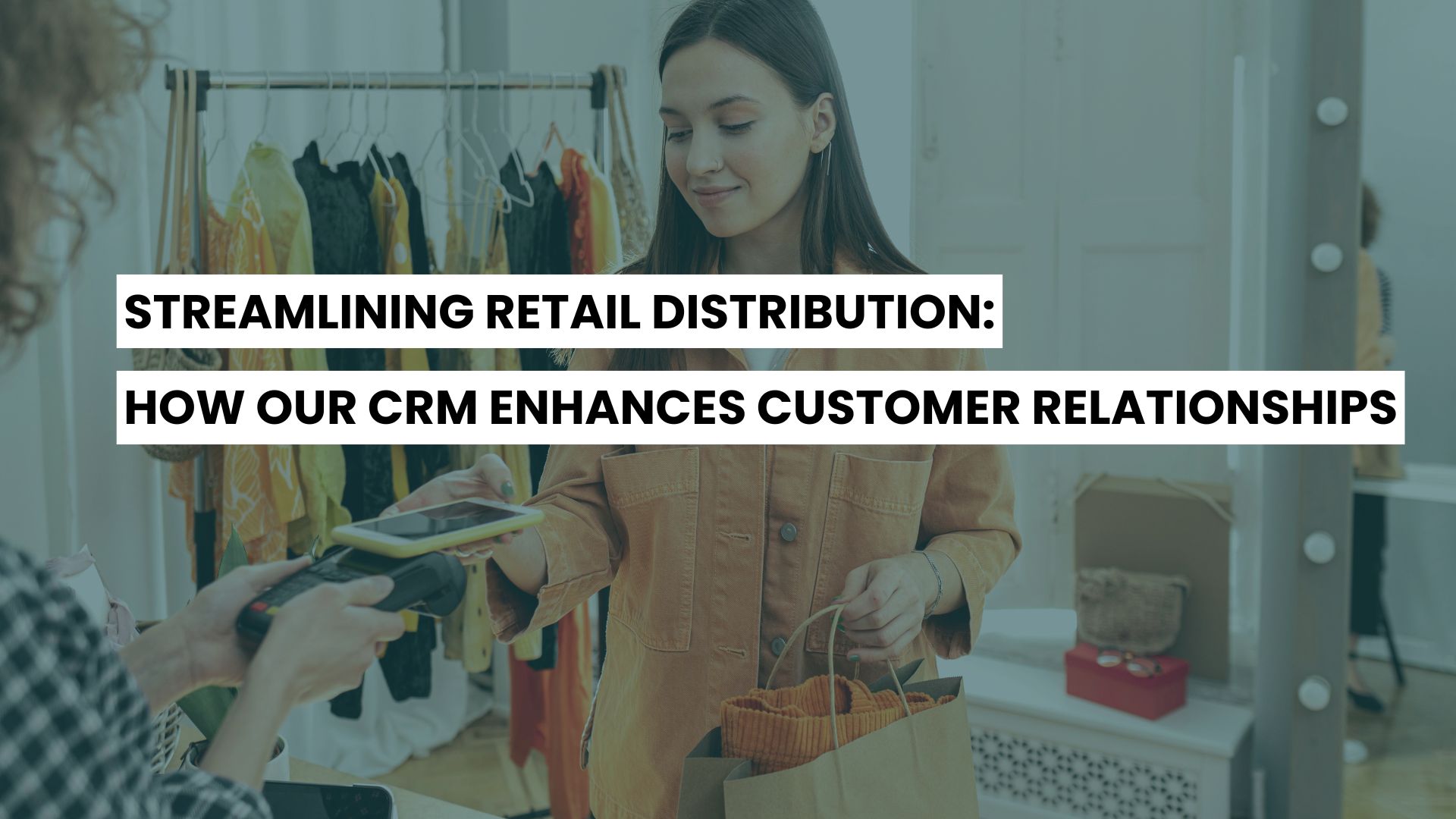Introduction:
Distributor Management Software (DMS) plays a pivotal role in streamlining processes and improving overall efficiency. However, to truly unlock its potential, integrating Customer Relationship Management (CRM) into your DMS can prove to be a game-changer. This blog explores the synergies between DMS and CRM integration, highlighting the benefits and strategic advantages that businesses can gain from this powerful combination.
Understanding Distributor Management Software:
DMS is a comprehensive solution designed to manage and optimise the various facets of distribution operations. From inventory management to order processing and logistics, DMS provides businesses with a centralised platform to oversee their entire distribution network. It empowers organisations to make data-driven decisions, reduce operational bottlenecks, and enhance overall supply chain visibility.
The Role of CRM in Business Operations:
On the other hand, Customer Relationship Management (CRM) systems are instrumental in managing customer interactions, fostering relationships, and driving sales growth. A well-implemented CRM strategy allows businesses to understand their customers’ needs, personalise interactions, and ultimately improve customer satisfaction. It acts as a hub for customer data, ensuring that every interaction is meaningful and contributes to a positive customer experience.
Synergies between DMS and CRM Integration:
360-Degree View of Customer Information:
By integrating CRM into DMS, businesses can achieve a comprehensive view of customer information. This holistic perspective includes not only transaction history but also customer preferences, communication history, and feedback. This consolidated data empowers sales teams to make more informed decisions and tailor their approach to individual customer needs.
Improved Order Processing and Fulfilment:
DMS focuses on optimising order processing and fulfilment, ensuring products reach customers efficiently. When integrated with CRM, this process becomes even more seamless. Sales representatives can access real-time inventory data, track order status, and provide customers with accurate delivery timelines. This integration enhances communication between sales and distribution teams, leading to quicker order fulfilment and increased customer satisfaction.
Enhanced Sales and Marketing Alignment:
DMS and CRM integration fosters better alignment between sales and marketing efforts. Sales teams can leverage CRM data to identify potential leads and target customers more effectively. Marketing teams, armed with insights from DMS, can create campaigns that resonate with the specific needs of the distribution network. This alignment ensures a cohesive approach to customer acquisition and retention.
Data-Driven Decision Making:
The combined power of DMS and CRM provides businesses with a wealth of data. Analysing this data can uncover valuable insights into customer behaviour, market trends, and operational efficiency. Armed with these insights, organisations can make informed decisions, identify areas for improvement, and stay ahead of the competition.
Conclusion:
In an era where data-driven decision-making is paramount, the integration of Distributor Management Software and Customer Relationship Management emerges as a strategic imperative. The collaborative strength of these two systems not only streamlines internal processes but also elevates the overall customer experience. Businesses that embrace this integration are better positioned to adapt to market changes, enhance operational efficiency, and build lasting relationships with their distribution network and customers alike.




